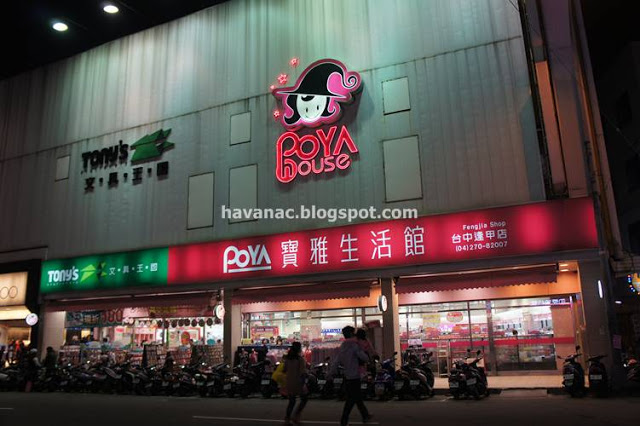
Monthly Archives: January 2014
Adventures in Taiwanese psychiatry
Psychiatry update!
China Medical University Hospital (branches in Taichung and Beigang) has done an admirable job in taking care of my anxiety and depression. I cannot get Vistaril, but they are giving me Xanax like the end of the world is nigh, which is good or bad depending on your viewpoint.
One experience worth recounting is that I ran out of Celexa and went abruptly onto Lexapro, which given the chemical similarity of the two medications, you’d think wouldn’t be a big deal. It was a big deal. A very big deal. I felt like shit-death for two weeks. Don’t do what I did. Ease off one to the other, even if you doctor doesn’t instruct you to do so.
They are free and easy with the ambien. I take ambien more to ease evening anxiety than to sleep. My doctor kindly prescribed me Neurontin, which my old doctor cross-prescribed because it takes a bite out of the anxiety. I also got an Abilify kick, which is very helpful.
All in all, my experiences managing my anxiety and depression from the pharmaceutical stand point have been reassuring. My visits to the doctor plus medicine cost about $33 U.S. We really need socialized health care in the States.
Poya House

This is my favorite store in Taiwan. It’s like if Walgreens and Target had a baby.
The dark side of the hair wash
Don’t do this more than a couple of times a month unless you have oily, resilient hair. While I still adore a good xie tou fa, I was crashing in a place with a grotty bathroom, so I didn’t want to shower or wash my hair. Now I can mop off with a towel and some soap in a basin to keep myself from getting stinky, but the hair needs seeing to. Three washes in a week later, my hair is trashed.
They don’t put conditioner in it, and they don’t take the greatest care in not breaking it when it’s wet. So now I’m going to experiment with cold-press coconut oil, which I hear is amazing, and leave the blow dryer on the shelf until it’s all healthy again. The coconut oil is awesome on skin, and I even dab some on my face, which is controversial. It really gets rid of dry spots. Unlike the miraculous Argan oil, the coconut oil molecules are actually small enough to penetrate the hair’s shaft.
I ordered some Keratase Elixir Ultime and waited for it to come from Momo with the eagerness of a child waiting for Christmas morning. I’m not sure if it lived up to my expectations, but it does smell good and I can’t get Frizz Ease here.
Taiwanese/American cultural differences
My recent post have been kind of negative, but rest assured, dear reader, I still like Taiwan. It’s just that I’m still in the “negotiation” phase of culture shock, which means a lot of the stuff I got a kick out of initially seems normal (beautiful plants, low priced lots of things) and a lot of other stuff I thought I understood about the world is kicked upside down, which is irritating.
With this great adventure (as people I know who are not me and are not here like to think of it), comes 98% normal, everyday, going-to-work/the store/to sleep-ocity. I’m too poor to jet off to the Philippines or Thailand (or Hualien, for that matter). So life is normal, but with more beautiful plants and much nicer weather (it’s January and 78 degrees out).
So now with the long “why I’m so bitchy” preamble out of the way, here are some cultural differences that will rub Americans and possibly other western expats the wrong way.
1. Gossip. Gossip is universal, so what makes Taiwanese gossip somehow worse? They don’t bother to pretend they aren’t gossiping about you, which is awkward. We’ve all been grist for the gossip mill, but where I come from, people know not to just blurt out that your misdeeds or secrets are the most fascinating thing about you. I’ve faked surprise over news I already knew many times in order to give my friends and acquaintances the impression of privacy.
A couple of weeks ago, I ran into a man I met once before, and one of the first things he mentioned was hearing that I left my job and was being kicked out of my apartment in ignominy (ignominy because I took the high road and did not trash my land lady or tell everyone her studio is haunted, something I was severely tempted to do) in front of his wife and daughter, who I had just met a few seconds ago. That is uncomfortable! In my forthcoming book (not really) “How to Deal with Americans in the Workplace”, one of the cardinal rules is to never ever let an American know that he or she is being talked about. We hate that. Fortunately, I had my Berkeley shirt on, so I could do a counter move of evoking my superior education and that the job I left my old job for is teaching college, so if I had face (not sure whiteys have face here), I would have saved some of it.
2. The Taiwanese Yes. This isn’t unique to Taiwan by any means, but is common throughout east Asia. The East Asian version of “Inshallah” but even more confusing; the Taiwanese yes means “I don’t want to hurt your feelings and lose face by appearing uncooperative, so I’m going to say yes, when I have no intention of following through and can and will change my mind if and when I choose.” We all say yes when we mean no, or at least I assume we do, but you don’t consider how culturally conditioned the circumstances of this practice actually are until dealing with a surprise yes-no on an issue where you considered clarity important. In the States, this is limited largely to vague future social plans or other low stakes ventures.
3. Personal responsibility for mistakes. Thus far, none of the Taiwanese people I’ve met in positions of authority have admitted to an error. In the U.S. it’s part of professional culture to own mistakes, especially small, understandable ones with an “I’m sorry, won’t happen again.” Pointing out another’s error here (I’m guessing) causes him (in my case it’s men) to lose face. In the States, you gain face from taking responsibility for your errors. To do so implies you are aware of what went wrong and have the power to prevent it in the future. Here, that just isn’t the attitude.
After a series of inquiries into who let me walk into class with half of my students gone on a field trip with no forewarning, the misdeed was traced straight to the director of academics. When I asked my co-teacher to ask him to make sure we know about major schedule changes, his response instead of “Sure, no problem” was “It doesn’t happen very often.” To American ears, that is the wrong answer. I really want to explain to these men how immature it makes them seem to us. Denying wrong-doing is teenager territory.
4. Comments about appearance/age. This one can be very nice, but even in its nicest manifestations, it feels weird. I am told that I am beautiful by Taiwanese women and children, which is very nice. I’ve got the Snow White coloring they like and my white (not Caucasian, super pale Caucasian) skin is considered attractive. But after a while, it’s weird to have people comment on your looks. I’ve had a friend of mine who is big get asked insensitive questions about how much she eats, etc. Not cool (and debatably cool in Taiwanese culture, we have reason to believe the perps knew they were being rude). Now being told that one is beautiful by strangers doesn’t sound like a legit woe, but it does go hand in hand with comments about how long in the tooth I am. 35 and single? “That is a bummer”, announced most of the Taiwanese ladies in their 50s or older I’ve met. I don’t consider my age a big problem, although my sentiments on being single have been explored in other posts.
5. Money questions. The last one for this entry– people will ask you how much you make, how much you pay in rent, how much you paid for that. It is jarring. And it’s not in the “I hate to be rude, but do you mean telling me what you rent is?” way we cringe around the subject just in case we’re trying to get an idea of how much to budget for whatever item you have that we might want to purchase. You don’t get the sense that people are asking because they want to know what salary to ask for at their next job or how much a place in that neighborhood goes. It’s just idle curiosity.
My admittedly brief training in anthropology leads me to believe all of these practices evolved for good reasons. The practices that seem weirdest in the world have reasonable rationales when explained by my ethnography books in college. As I spend time here, I will learn what function these practices hold.
crying-white-lady.jpg

Leaving Beigang and quitting a job in a Taiwanese public school
I found a job teaching college and so I will be leaving my teaching job in Beigang/Shuilin and moving to the big city. I will follow up with a best of Beigang post just so that the handful of people who make it there know where to eat/get their hair washed/find a dance studio. Basically, I’ll give you the info I wish I had when I got there.
Beigang was nice, but it was difficult living there as a single expat. There just aren’t many other expats or that much to do. I also got kicked out of my place. Here’s what I think happened.
I was supposed to teach ballet classes in exchange for rent, but there was confusion from the start. I’m a belly dancer, not a ballet dancer; a critical difference. I did bail on my end of the bargain, and was refused my offers to pay rent. I did hold up my end in terms of tutoring my land lady’s kids, but she wasn’t that interested in that part.
What really sucks about the above is that finding an apartment in Beigang is this side of impossible. One pretty gnarly place was trotted out, and that was my only choice. Thankfully the job in Taichung, where apartments are more plentiful, popped up. And the apartment I found here is nicer than any I’ve seen in Beigang.
Here are two cultural differences that were highlighted in my varied exoduses.
Firstly, the Taiwanese yes. “Yes, you can move in. Yes, it’s ok that you aren’t a ballerina. Oh wait, I wasn’t allowed to rent you the space and I thought you were only staying a month. You have to move out.” This was the dialogue about my apartment. I’m still perplexed about who was lying, but someone was in order to save face. The man who found me the apartment either forgot to tell my then future land lady that I was planning to stay for more than a month (I had 8 months left on my contract) or that I was a teacher at his wife’s school (implying a stay of longer than a month), or my former land lady really did rent me a space she had no authority to rent, which is weird. I’ll say this; someone was very careless/thoughtless because as previously mentioned, finding apartments in Yunlin county take connections. I worried that I had offended or been somehow wanting as a tenant.
I heard through the gossip mill (which is prevalent in rural anywhere) that the land lady was pissed about the ballet classes. Well, I tried to make amends, so life goes on.
My leaving the school was another cultural difference. To quit, you need to give 30 days. That’s just a heads up to the five of you reading this. Your boss has to “let” you quit, which is jarring to an American. My bosses and recruiter (Teach Taiwan) initially told me they could have me deported (they can’t). Slowly we moved from “We can have you deported” to “We’ll let you go after 3 weeks and you get your full pay, but you won’t get your termination documentation for two weeks, so your new job won’t be able to pay you on time.” I considered that to be as good as could be expected.
So now to new adventures in Taichung.


